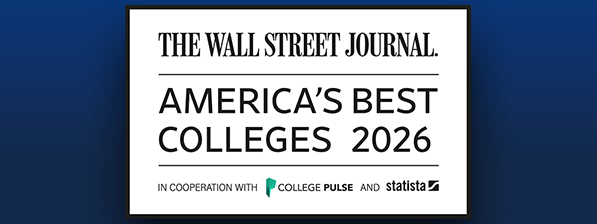
You’ve put in the work of researching, reading, writing and revising your paper. You’ve read it out loud and followed the assignment requirements.
You’re going strong, but there’s still another step you need to perfect your paper.
The peer edit.
Utilizing peer review in your writing process may not always be easy. You’re offering the paper that you’ve spent hours on up for critique.
But the peer edit can be so beneficial in enhancing your writing.
We may often think of “peer review” in terms of journal articles that have been analyzed and approved for accuracy. While your paper won’t require that same heightened, professional level of critique, bringing it to one of your peers—whether a classmate, a friend, a mentor—can enhance your research paper greatly.
Here, we share about the importance of incorporating a peer review process for both the author and the reviewer.
What is Peer Review?
A peer review of your research paper is different than the editing process that you go through. Rather than you going through each section, citation, argument in your paper, someone else does. A peer review involves handing it to someone you trust to allow them to read it and provide feedback to help make your paper the best it can be.
This is no small feat. It requires you to be vulnerable about what you’ve written. You need to be willing to accept mistakes you may make and be committed to accepting their suggestions as a way to grow in your writing and academic work.
Why is Peer Review Important?
This stage of the editing process is unique in that pulls in another perspective. Unlike you, your peer editor hasn’t been immersed in reading and research on your paper’s topic. They don’t know for certain what direction your paper will go or what your arguments are.
This new, objective perspective brings great value in revision.
A fresh set of eyes sees issues, gaps, mistakes and clouded arguments that you may have missed or had not thought of.
When your peer editor sits down and sifts through your paper, they provide both positive comments of what’s going well in the paper, as well as opportunities for improvement in areas that may be unclear. Their input helps make your paper better, if you choose to follow their recommendations.
If you’re working with a classmate, trade papers and review each other’s paper. This not only allows you to receive feedback on your paper, but it also develops your skills in providing feedback and looking for specific elements in a paper. You become a better editor. Whether you’re passing your paper off or reviewing a paper, your skills in writing can be greatly enhanced.
Questions to Ask in the Peer Review
In the peer review process, it’s helpful to have a plan of action in addressing the paper. Below are five questions that can help guide the process. Whether you’re the author or the reviewer (or both), these five questions can help focus your attention on key components of the assignment and enhance your skills.
Question 1: Is the Audience and Purpose of the Paper Clearly Established?
As a reviewer, one of the first things you want to be sure to notice in the paper is if you can figure out who the paper is addressing. The audience of the paper should be evident in reference to the topic, the tone of the paper and the type of language used.
For example, if the paper contains a lot of jargon and industry-specific language, you could infer that the audience would be familiar with those terms. If not, you may want to suggest using less jargon or explaining the terms used.
The purpose of the paper should also be very clear and straightforward to you as the new reader. The thesis statement, most often in the introduction, should clearly convey the purpose. But from the opening to the main arguments to the concluding statement, the purpose of the paper should be obvious.
As a peer reviewer, you can help the author determine if both the audience and purpose of the paper are clearly established early on in the paper.
Question 2: Does the Main Point Match the Thesis Statement?
One of the most important sentences in the paper is the author’s thesis statement. The location and type of thesis statement depends on the kind of essay or paper. However, as a general rule, thesis statements should be concise, straightforward and clear in addressing the main argument.
As a new reader, you as the reviewer can provide great insight into the clarity of the thesis.
The Writing Center at the University of North Carolina has a helpful article on crafting the perfect thesis. In this article, they suggest you ask the following questions of the thesis statement:
- Can I find the thesis statement?
- Is the thesis specific enough?
- Does the thesis answer the “so what” question of the paper?
- Does the rest of the paper support the thesis statement?
Peer review can help enhance a thesis statement by noticing gaps or questions in the argument.
Question 3: Does the Paper Flow Well?
When you’re the writer of a paper, you may work in sections. First, you tackle main point A, then move onto B, add in C and finish up with a conclusion.
When you’re a peer reviewer, you’re reading it for the first time all in one glance. With this new perspective, you can more easily identify gaps, questions and concerns in the structure of the paper.
Does point A leap to point B leaving little to hold on to? Note that the author should include a better transition. Are you left wondering what point C has to do with point A? Highlight the need for a better connection between main points.
With an objective, outside perspective, you can help the author improve the flow and clarity of their paper to communicate most effectively.
Question 4: What Areas Need Additional Description?
As a reviewer of a paper, you want to fully understand the content you’re reading. And when you come across a section that you’re left wondering what’s going on, it can be frustrating.
An important question to ask as you review a paper is if each section contains sufficient description and detail to add value to the paper. Notice those areas that come across as too vague and uninteresting. Highlighting the desire for more information encourages the author to add clarity and enhance their ability to communicate effectively.
Question 5: Do you notice any grammar or word choice mistakes?
While this final question may be the most obvious, you want to help your author out by pointing out those grammar and word choice errors that she may have missed.
- Is there an extra comma?
- Does she have subject-verb agreement in all sentences?
- Are most of the sentences in active voice?
- Did they incorrectly cite their source?
- Is there an extra tab in their reference page?
Being on the lookout for these types of errors can also help you as the reviewer to refresh your skills in grammar, punctuation, paragraphs and APA Style.
Conclusion
Incorporating a peer review process in finalizing a paper is immensely beneficial for both the author and the reviewer. Each elevates their writing skills. The author is more confident in the paper she submits and the reviewer grows in her editing ability.
Be Supported as You Pursue Your Goals
PGS offers numerous academic support resources to equip you to succeed in your degree program, whether that’s in writing a paper or other assignments. Visit our academic support web page to discover more essential tools.










